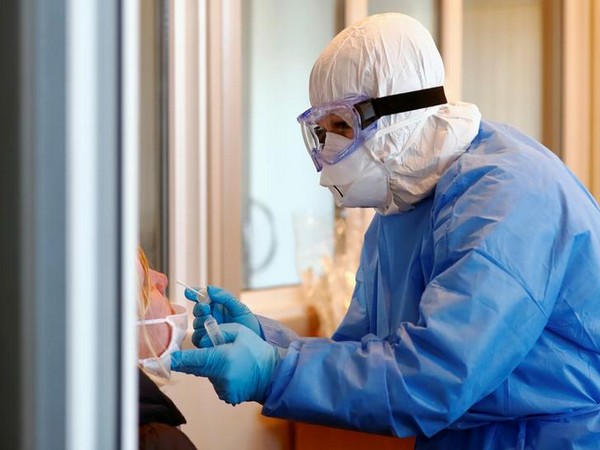W Cape concerned about growing COVID-19 infection rate
“There is also now established community transmission of the virus again in this province, which means that it is spreading within communities at a faster rate,” the Western Cape Premier, Alan Winde, explained.

- Country:
- South Africa
The Western Cape has expressed deep concern about the growing infection rate and has since confirmed that it is dealing with a resurgence.
This comes after the province reported a 52.1% jump in new cases over the last week alone, after recording a more than 20% increase week-on-week.
“A resurgence is when the number of active cases increases, week-on-week, by more than 20%.
“There is also now established community transmission of the virus again in this province, which means that it is spreading within communities at a faster rate,” the Western Cape Premier, Alan Winde, explained.
According to Winde, the resurgence is mostly sparked by two districts, the Garden Route and the Cape metro.
He said the surge continues to gain momentum, especially in the Garden Route after issuing a hotspot alert last week.
There are now more active cases in the George and Knysna sub-districts since the outbreak.
Winde noted that the City of Cape Town is also following a similar trajectory.
“We are therefore also issuing a hotspot alert for the metro,” he added.
However, he highlighted that the spike in the City of Cape Town is recorded in every sub-district and not confined to one area.
“While the growth in cases has mainly been driven by these two districts, we are also worried about the Cape Winelands, which is starting to record a concerning number of new cases,” said Winde.
The province is closely monitoring the Overberg, Central Karoo and West Coast districts due to their proximity to the hotspots.
According to the province’s latest data, there are currently 7 241 active infections, with a total of 126 362 confirmed cases and 114 548 recoveries.
Health system under pressure
Winde said the established COVID-19 resurgence is reflected in the proportion of positive tests, which has now grown to 16%.
“My biggest concern is for our health platform, which is under growing pressure.”
The biggest concern, according to Winde, is hospitalisations, which reached 904 on Wednesday, after recording a low of under 500 in September.
The Premier said 431 patients are receiving treatment in public hospitals, while 473 are in private hospitals.
“In the last 24-hour reporting period alone, the number of people being hospitalised for COVID-19 increased by a staggering 54 people.”
The Brackengate Hospital of Hope is now treating 109 patients after having a few patients in September.
“In fact, since the start of November, COVID-19 hospitalisations across the province have increased by 63%.
“The private sector has increased by 94%, while the public sector has increased by 39%,” said Winde.
Meanwhile, critical care admissions have risen by 75% since the start of November.
“This is particularly concerning, as an admission to a critical care unit is an indication of severe illness that might lead to death,” said Winde.
Lockdown
Winde called on everyone to prevent a hard lockdown and to ensure that there are enough empty beds in hospitals for those who need them.
“We must be under no illusion as to how serious the situation is, and how quickly it can deteriorate further.”
The province said it has reintroduced key healthcare services to facilities, as it needs to provide comprehensive care to everyone who needs it, including non-COVID-19 patients.
“This means our hospitals are already fuller than they were earlier this year during the first wave of hospitalisations,” said Winde.
He said the province is trying to avoid "de-escalating" essential services because this will have a detrimental impact on people’s health.
“We have to save all lives, including those who don’t have COVID-19.”
He believes the situation can be under control through people’s actions.
“We also cannot afford a lockdown again, as is being witnessed in many European countries right now. Our economy simply cannot afford it. A lockdown would kill jobs and cause our humanitarian disaster to worsen. This will also cost lives in the future,” he stressed.
Keep safe
Everyone needs to remain safe and protect each other by following all the non-pharmaceutical protocols, he said.
“Every single resident should assume that COVID-19 is everywhere they go and take all the necessary precautions at every point along their journey.”
The Western Cape said it will drastically increase high visibility enforcement of the regulations to help slow down the spread of the virus through its Disaster Joint Operations Centre.
“We urge members of the public, businesses and other organisations to report violations of COVID-19 protocols immediately so that our teams can take action immediately,” said Winde.
(With Inputs from South African Government Press Release)
- READ MORE ON:
- Alan Winde
- COVID-19










